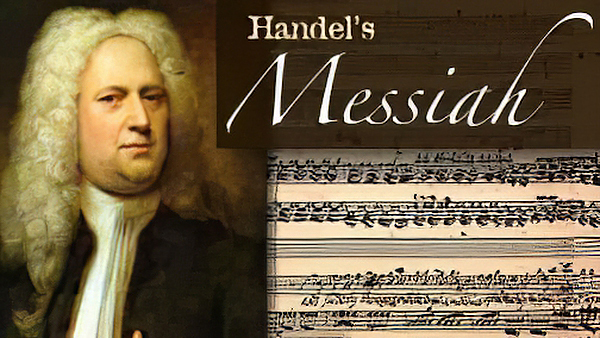Since its first performance in 1742, Handel’s Messiah has remained a Christmas favorite. Many don’t realize that the text is scriptural from the King James Bible, and from the Psalms included with the Book of Common Prayer. In fact there are as many performances of the Messiah in churches as in concert halls due to this fact. Handel’s inspiration came after being overwhelmed with reading the Old and New Testament.
This will be a multimedia study of the Messiah. Over the four sections, we will read the Bible verses from the Book of Isaiah and others to understand Handel’s treatment of the Advent story. Then we will see the Messiah on video. There are some fine performances from many groups, including various British vocal groups, the Mormon Tabernacle Choir, Choir of Trinity Church Wall Street, and the Atlantic Symphony. In this way you have a chance to understand the Messiah in several formats.
Please note the first part is longer than the rest since the timeline covers a longer expanse of time. Some of the Biblical background verses have a “drop down”. Based on your time and interest, you can read or skip them.
Amazingly, the Messiah was written in only 24 days and contained 259 pages of music. The original baroque orchestra used was small, containing about 40 members compared to hundreds in today’s orchestras.
Messiah is an English oratorio, a large musical composition including an orchestra, a choir, and soloists. This is a concert piece but not music theatre like an opera which has characters. Since Handel composed this for the English stage, it is in English unlike in Italian with many operas.
The Messiah was written in three parts but during Christmas we will concentrate on Part 1 which deals with the Messiah’s coming, particular through the prophets. When it was written, the author intended his finished work to celebrate the season of Lent and culminate on Easter. However, since its original performances, Handel’s Messiah has come to be synonymous with the season of Advent and Christmas.
The text for the course was taken from Hallelujah, The Bible and Handel’s Messiah by Carol M. Bechtel and Messiah, The Gospel according to Handel’s Oratorio by Roger A. Bullard. It is part of the KERYGMA program purchased for the original course.
Before we get to the four parts, there is an article on Handel and his time, a Biblical timeline , the libretto or words for the oratorio.

